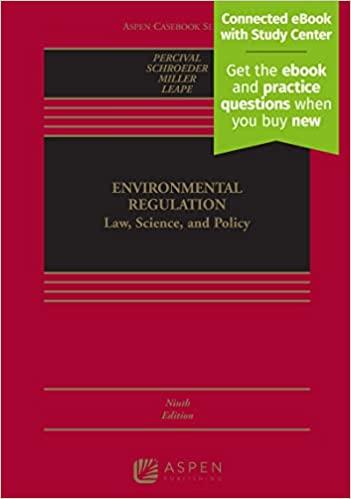Question
I have a question about these 2 cases: Overseas Tankship (UK) Ltd v Mort's Dock and Engineering Co Ltd (The Wagon Mound (No 1)) [1961]
I have a question about these 2 cases:
Overseas Tankship (UK) Ltd v Mort's Dock and Engineering Co Ltd (The Wagon Mound (No 1)) [1961] AC 388
Overseas Tankship (UK) Ltd v Miller Steamship Pty Ltd (The Wagon Mound (No 2)) [1967] 1 AC 617
Both of these 2 cases are based on one fact, but with the different plaintiffs, the outcomes are rather different:
In the first case, the court said that it was not reasonably foreseeable that the oil would catch on fire in the water, there is some risk, but not a high one as it normally would not have ignited.
However, in the second case, the court said that a properly qualified and alert engineer would have realized there was a real risk (not far fetched risk)
So what causes such a difference in the outcome of these 2 cases, when they are based on the same fact?
Context:
Please search Overseas Tankship (UK) Ltd v Mort's Dock and Engineering Co Ltd (The Wagon Mound (No 1)) [1961] AC 388 and Overseas Tankship (UK) Ltd v Miller Steamship Pty Ltd (The Wagon Mound (No 2)) [1967] 1 AC 617 on website.

Step by Step Solution
There are 3 Steps involved in it
Step: 1

Get Instant Access to Expert-Tailored Solutions
See step-by-step solutions with expert insights and AI powered tools for academic success
Step: 2

Step: 3

Ace Your Homework with AI
Get the answers you need in no time with our AI-driven, step-by-step assistance
Get Started


